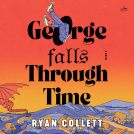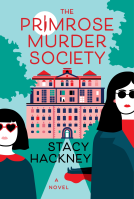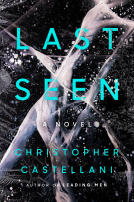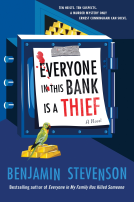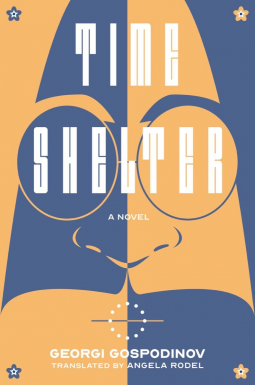
Time Shelter
A Novel
by Georgi Gospodinov
This title was previously available on NetGalley and is now archived.
Send NetGalley books directly to your Kindle or Kindle app
1
To read on a Kindle or Kindle app, please add kindle@netgalley.com as an approved email address to receive files in your Amazon account. Click here for step-by-step instructions.
2
Also find your Kindle email address within your Amazon account, and enter it here.
Pub Date May 10 2022 | Archive Date Apr 30 2022
W. W. Norton & Company | Liveright
Talking about this book? Use #TimeShelter #NetGalley. More hashtag tips!
Description
An award-winning international sensation—with a second-act dystopian twist—Time Shelter is a tour de force set in a world clamoring for the past before it forgets.
“At one point they tried to calculate when time began, when exactly the earth had been created,” begins Time Shelter’s enigmatic narrator, who will go unnamed. “In the mid–seventeenth century, the Irish bishop Ussher calculated not only the exact year, but also a starting date: October 22, 4,004 years before Christ.” But for our narrator, time as he knows it begins when he meets Gaustine, a “vagrant in time” who has distanced his life from contemporary reality by reading old news, wearing tattered old clothes, and haunting the lost avenues of the twentieth century.
In an apricot-colored building in Zurich, surrounded by curiously planted forget-me-nots, Gaustine has opened the first “clinic for the past,” an institution that offers an inspired treatment for Alzheimer’s sufferers: each floor reproduces a past decade in minute detail, allowing patients to transport themselves back in time to unlock what is left of their fading memories. Serving as Gaustine’s assistant, the narrator is tasked with collecting the flotsam and jetsam of the past, from 1960s furniture and 1940s shirt buttons to nostalgic scents and even wisps of afternoon light. But as the charade becomes more convincing, an increasing number of healthy people seek out the clinic to escape from the dead-end of their daily lives—a development that results in an unexpected conundrum when the past begins to invade the present. Through sharply satirical, labyrinth-like vignettes reminiscent of Italo Calvino and Franz Kafka, the narrator recounts in breathtaking prose just how he became entrenched in a plot to stop time itself.
“A trickster at heart, and often very funny” (Garth Greenwell, The New Yorker), prolific Bulgarian author Georgi Gospodinov masterfully stalks the tragedies of the last century, including our own, in what becomes a haunting and eerily prescient novel teeming with ideas. Exquisitely translated by Angela Rodel, Time Shelter is a truly unforgettable classic from “one of Europe’s most fascinating and irreplaceable novelists” (Dave Eggers).
About the Author: Georgi Gospodinov, one of Bulgaria's most lauded authors, has won the Angelus Central European Literature Award and the Jan Michalski Prize for Literature, among many other accolades.
About the Translater: Angela Rodel, recipient of a PEN/Heim Translation Fund Grant and NEA Literature Translation Fellowship, is a prolific translator of Bulgarian literature.
Available Editions
| EDITION | Hardcover |
| ISBN | 9781324090953 |
| PRICE | $27.00 (USD) |
Average rating from 8 members
Featured Reviews
4.5/5
In Georgi Gospodinov's ‘Time Shelter’ our narrator ( a Bulgarian novelist) takes us through his association with Augustine-Garibaldi (“And so early theology and late revolutionism were brought together.”) or Gaustine as we get to know him.Gaustine is a geriatric psychiatrist who uses his knowledge to treat those suffering from Dementia or Alzheimer’s by creating a safe space for them – a space and time defined by their state of mind, a time they associate with happiness. His “clinic of the past” features rooms that are meticulously designed, each representative of a decade in history. Our narrator assists him in acquiring objects and memorabilia that are to be used in setting up the said facilities- from wall calendars and posters to typewriters and radios to cigarettes and chocolates – no holds barred in recreating a figment of the past that corresponds to the patients' memories- a “protected past”.
“The time is coming when more and more people will want to hide in the cave of the past, to turn back. And not for happy reasons, by the way. We need to be ready with the bomb shelter of the past. Call it the time shelter, if you will.”
As the clinic in Zurich expands and new decades are introduced into the framework, Gaustine correctly assumes an approaching era when people, in an attempt to escape their present lives, would voluntarily choose to go back to a time and place when they felt more content or safe. This starts with Gaustine allowing family members and friends to accompany the patients to make them feel at home and provide them with insight into details of their lives – an example we see with a patient who was once surveilled by the Socialist State being visited by the very same government agent who was assigned to follow him decades ago and report his actions- to fill in the gaps in his memories. (“If we are not in someone else’s memory, do we even exist at all?”) Gradually the desire to postpone the future spreads and the lines between past and present start to blur and recycled pasts/secondhand futures become the call of the day with European nations opting to “vote for the past” and revert to a glorious phase in their history, recycling the past into the future rather than advancing into a future that does not hold much promise -but not without consequences. (“The world had become a chaotic open-air clinic of the past, as if the walls had fallen away.”)
The author discusses the past and present politics of the Eastern European nations and the EU through significant historical landmarks which are explored in the process of creating a time map for the countries of the union- the shared past, the distinct present and the point of reset when the timelines would eventually merge, if at all. As the situation worsens, with nations descending into chaos and anarchy, Gaustine disappears and the narrator's own memories seem to start collapsing into one another.(“While writing a novel about those who have lost their memories, he himself begins to lose his memory . . . He rushes to finish it before he forgets what he was writing.”) The reader (and the narrator) is compelled to question whether Gaustine is a real person who actually exists or a figment of the narrator’s imagination. “Gaustine, whom I first invented,and then met him in flesh and blood. Or perhaps it was the opposite, I don’t remember.”
The novel is divided into five segments and revolves around the theme of losing, escaping, controlling and halting time and the consequences of choosing to live in the past rather than looking ahead and moving forward. Initially, the tone is that of dry humor and nostalgia but gradually the setting and the tone transform into dystopian and critical. The pace of the novel is slow yet absorbing. The book does require a bit of patience. I did have to look up quite a bit on the Eastern European history referenced in the narrative, but it was well worth the effort. Complex yet brilliant, at times reflective, terrifying and hard-hitting, Georgi Gospodinov's ‘Time Shelter’ is literary fiction in its finest form.
“Does the past disintegrate, or does it remain practically unchanged like plastic bags, slowly and deeply poisoning everything around itself? Shouldn’t there be factories for recycling the past somewhere? Can you make anything else out of past besides past?”
Thanks to NetGalley and W.W.Norton & Company for the digital review copy in exchange for an honest and unbiased review.
When Metaphor Becomes an Illness.........
So if you combine time travel and slipstream do you get something like "timeslip"?
There are only two ways to comment on this book. You can try to summarize it, which isn't a bad approach except for the fact that any decent summary would have to be almost as long as the novel. Or, you could just flounder around with lots of references to time, history, nostalgia, memory, lost memory, lost time, the comforts of the past, and that sort of thing. If you were to take that second path you'd also have to make reference to Mann, Borges, Proust, Camus, Calvino, Kafka, St. Augustine, and pretty much every other fancy pants writer, philosopher, historian, or physicist who ever looked back, looked forward, and wondered about why or if they were different.
So, the best bit of help is this - This book is truly elegant literary fiction, with wry wit, deep human understanding, and historical breadth, that will reward the patient reader with a rare and memorable experience.
(Please note that I received a free advance ecopy of this book without a review requirement, or any influence regarding review content should I choose to post a review. Apart from that I have no connection at all to either the author or the publisher of this book.)
Readers who liked this book also liked:
Stacy Hackney
General Fiction (Adult), Mystery & Thrillers, Women's Fiction
Benjamin Stevenson
General Fiction (Adult), Humor & Satire, Mystery & Thrillers
